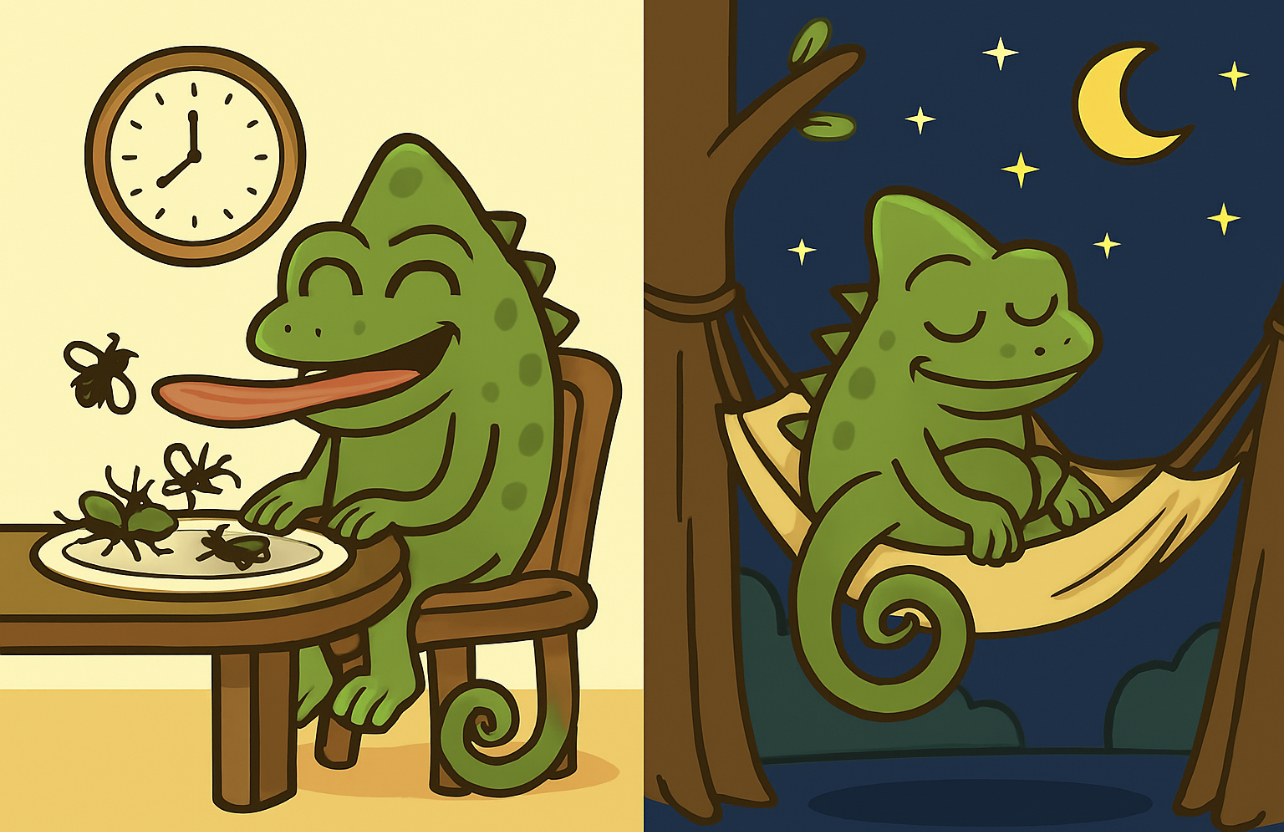Myth 66: “Don’t Feed Chameleons in the Afternoon — They Can’t Digest at Night”

The Claim
Some keepers insist that chameleons should not be fed in the afternoon, arguing that without heat lamps, they cannot digest food properly at night. A typical quote reads:
"If you feed them too late in the afternoon and they don't have their heat light on to help them digest it, then yes. I don't feed mine after 3pm. They need 3 hours to process what they've eaten."
This advice is not only misleading—it's biologically unfounded.
The Reality
Chameleons digest food both during the day and at night. The rate of digestion is influenced by temperature, not time of day. Enzymatic activity in reptiles is temperature-dependent, meaning digestion slows down in cooler conditions but does not stop entirely.
In the wild, chameleons feed opportunistically throughout the day whenever light and prey are available. There is no natural restriction to morning-only feeding.
Scientific Basis
Ectothermic physiology: Chameleons rely on ambient temperature to regulate metabolic processes. Warmer conditions accelerate digestion; cooler conditions slow it down.
Nocturnal digestion: While basking aids digestion, it is not required immediately after feeding. Chameleons can digest food overnight at lower temperatures, albeit more slowly.
Wild behavior: Field observations confirm that chameleons feed throughout daylight hours without any fixed schedule.
The Only Exception
The only valid restriction applies to brumating (semi-dormant) chameleons. During brumation, metabolic activity drops significantly. If food is offered during this phase, it may not be digested efficiently, leading to decay and potential toxicity. However, brumating chameleons typically refuse food altogether.
Final Word
Feeding chameleons in the afternoon is perfectly safe and biologically appropriate. The myth that they "can't digest at night" is a fabrication with no scientific support. What matters is overall husbandry—temperature, hydration, and species-specific care—not the clock.